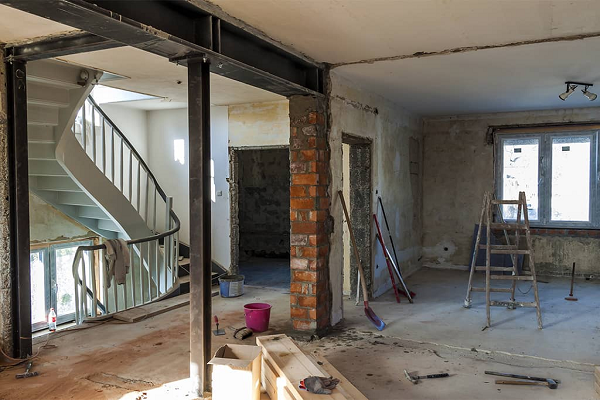How Much Do Property Renovations Cost (and Can You Avoid Overpaying)?

The past 12 months alone have added an average of £39,000 to the market value of a UK home. Millions of homeowners have found themselves sitting on a small fortune and understandably want to get the best possible return on their investments.
Conducting home improvements and renovations is one of the best ways to maximise a property’s value before listing it for sale. But exactly how much does it cost to renovate a home, and how can you ensure the improvements you make generate respectable profits?
How much do renovations cost?
A combination of factors over the past few years has seen the costs of property renovations skyrocket. From basic building materials to labour to the latest green technologies, prices across the board are on the rise.
The average loft conversion, for example, now costs around 25% more to undertake than it did two years ago. Alarmingly, the cost of installing a new bathroom in a residential property is also up by as much as 40%.
Renovation costs vary significantly from one property type and area of the UK to the next. According to the Homeowners Alliance, this is how much you can expect to pay to renovate and improve your home in 2022:
| PROJECT | HOUSE RENOVATION COST |
| Extension | £26,000 – £34,000 |
| Loft conversion | £45,000 |
| New bathroom | £6,000 |
| New Kitchen | £10,000+ |
| Garage conversion | £6,000 |
| Subsidence | £6,000 |
| Damp | Up to £16,000 |
| Double glazing | £400 — £600 per window |
| Installing central heating | £4,000 |
| New boiler | £2,700 |
| New roof | £4,500 – £12,000 |
| Fixing rot | £1,000 – £2,000 |
| Woodworm treatment | £450 – £800 |
Source: hoa.org.uk
On top of the above, experts advise allowing an additional 10% to compensate for unexpected issues and additional costs encountered along the way.
What are the best renovations to add value to a property?
When it comes to generating the best possible ROI with property renovations, some home improvements are known to generate bigger profits than others.
For example, a loft conversion has the potential to generate the biggest profit of all (an average 16% property price increase), followed by a double-story extension at 15%. A single-story extension will typically increase a home’s value by 11%, whereas a complete kitchen renovation can contribute 10% to a property’s resale value.
Meanwhile, adding a conservatory to your home could increase its market value by 9%; a single garage can add an average of 7% to the value of a home; and a medium-scale bathroom refit can contribute 4%. Surprisingly, simply painting and decorating the interiors of a property can boost its asking price by as much as 3%.
How to avoid overpaying
Irrespective of the type of renovations you set your sights on, it is up to you to ensure that you don’t overpay. Before entering into a contract with any builders or construction companies, ensure that they are registered with the likes of Trustmark, the National Federation of Builders, or the Federation of Master Builders.
Using Checkatrade to verify the credentials of other types of contractors is highly recommended, as is requesting recommendations and references from past customers.
Fixed quotations should always be issued in advance of the commencement of a project, and all essential terms and conditions must be agreed upon in writing. You should also be given as much time as needed to evaluate the provider’s reputation and stature, with no pressure to go ahead at any time.
Online reviews and recommendations alone can give you a good idea of whether a service provider or contractor is worth doing business with. If there is a disproportionate quantity of negative feedback or anything untoward about their track record, you could be taking a risk by putting your home in their hands.
